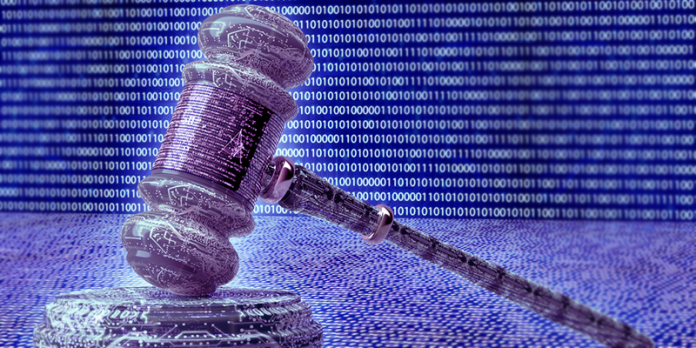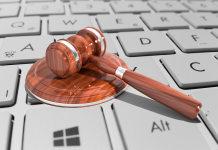This Article is written by Mehak Jain from Hidayatullah National Law University. This is an exhaustive article that aims to list down the laws to tackle online defamation and addresses the grey area between freedom of speech and online defamation.
Table of Contents
Introduction
The Internet has taken the world by storm. It has brought people closer than ever and has been one of the best tools of communication. However, anything in excess possesses a threat. Crimes have moved over to the internet as well, and have destructive capacity to cause damage. Online defamation refers to defamatory information being spread over the internet to harm a person’s reputation and image. The wide accessibility, mass reach, and increasing popularity of the internet make this offence more harmful than ever, and statutory provisions have been enacted as a safeguard against this issue.
Online defamation distinguished from Physical defamation
Recent amendments in the IPC have distinguished online defamation from physical defamation. The need to do so arose since the evolution of the internet has also led it to be a medium for propagation of online crimes.
Defamation
Section 499 of the IPC defines defamation as words spoken or written, or signs or visible representations made or published with an intention of damaging the reputation of a person or a group of persons. Defamation may be bifurcated into two:
- Libel: A defamatory statement made in a writing.
- Slander: A defamatory statement made orally.
The important thing to note is that a mere defamatory statement doesn’t amount to the offence of defamation unless it is published. Publication of such a statement is necessary to constitute the offence. However, this does not mean it has to be in print.
Other than that, another important ingredient to constitute this offence is that the imputation must be made with an intent to harm the reputation of a person in the eyes of others and to lower his/her moral and or intellectual character. For example, if A sends a letter to B calling him a thief, this alone shall not suffice to constitute defamation as no damage to his reputation has been done in the estimation of others. However, if A publishes such a statement in a magazine, it shall harm the public image of B and A shall be held liable for defamation.

Online defamation
Defamation taking place in cyberspace is online or cyber defamation. It occurs when the internet is used as a medium to defame an entity. For example, posting defamatory statements about someone on social networking sites such as Facebook, WhatsApp, etc. falls under cyber defamation. Spreading emails with malicious content that can harm the reputation of a person also falls under the offence.
The reach and inexhaustive nature of the internet make it difficult to assess the pecuniary harm done in monetary value. Apart from that, it has a significant impact on the welfare of the victim since the damage done on the internet is widespread and irreparable.
Liability
Liability rests on:
- Author of the defamatory content;
- Service provider of the intermediary. However, service providers are protected by Section 79 of the Information Technology Act, 2000, provided they were only responsible for the facilitation of the content and had no role to play in its modification or initiation. The protection of this Section is also subject to the fact that the service providers shall take down such content on receiving notification of the concerned government and shall duly comply with the Intermediary Guidelines requirements.
Examples of Online Defamation
Let’s take a look at some examples to clarify the concept of online defamation. Say, you posted a status on Facebook saying that B is cheating on his wife. If the statement is true, it shall not be defamatory. However, if false, it has all the ingredients to constitute online defamation.
Defamation v. Free Speech
Taking the same example, say, if A had written, “I think B is cheating on his wife”. In this case, it appears as if A is merely stating an opinion. However, the statement of opinion may be regarded as a statement of fact depending on the graveness of the defamation in the case. Simply paraphrasing opinions with an “in my opinion” clause does not help camouflage it from the offence of online defamation.
The Constitution of India in its Article 19(1)(a) guarantees the freedom of speech and expression to its citizens. However, this is subject to reasonable restrictions. There’s a considerable difference between freedom to express one’s opinion and making statements with a mala fide intent. Protection from harm to one’s reputation falls under a reasonable restriction.
What if the statement is partially true?
Partial truth in the statement does not save one from defamation if the statement hampered the reputation of a person. Facts must be checked and only then be posted. Possession of half information is always defamation. What is circulated on the net, ought to be thought about, as there’s no coming back once the send button has been clicked.
Indian laws on online defamation
Section 499, IPC: Definition of defamation
This Section defines defamation. When a person intends to harm or has a reason to believe that their action may lead to harm to the reputation of such person, by the means of words spoken or meant to be read, or by signs or visible representations made or published, he/she is said to have committed the offence of defamation. Defamation may be made to more than one person, such as a company or a group of persons.
With the introduction of the Information Technology Act, 2000, the definition of defamation was broadened in scope to accommodate “speech” and “documents” in electronic form as well.
Section 500, IPC: Punishment for defamation
This section prescribes simple punishment which may extend to two years, or fine or both for the offence of defamation.
Section 469, IPC: Forgery when intended to harm someone’s reputation
Anyone who forges a document or an electronic record with an attempt to harm the reputation of a person shall be punished with imprisonment which may extend up to three years, and shall also be liable to fine.
Earlier, the phrase “intending the document forged” was present. However, the introduction of the IT Act amended it to accommodate electronic records as well.
Section 503, IPC: Criminal intimidation
Whoever threatens a person or someone such person has an interest in with an injury to their person, reputation or property, with an object of inducing fear into their minds or to cause such a person act illegally or omit to do any act which they are legally entitled to, is guilty of the offence of criminal intimidation. It extends to a threat to hamper the reputation of a deceased person as well. Emails and other electronic means of communication for harming reputation may be used as a means to damage reputation and are well within the ambit of this section.
The Controversial Section 66A of IT Act, 2000
Object of Section 66A
Section 66A of the IT Act, 2000, does not specifically deal with online defamation. However, it makes the sending of offensive material for the object of harming someone’s reputation or for criminal intimidation a punishable offence. According to it, if a person uses a computer resource or device to circulate content which is menacing and offensive, or information which he/she knows to be false but still sends it across the internet for some ulterior motive, or sends an email with an aim to deceive the recipient about its origin, he/she shall be punishable with imprisonment which may extend to three years, along with fine.
Controversy
In Shreya Singhal v. Union of India, two girls from Maharashtra filed the first petition against this Section in Thane Police following their arrest due to their comments on a post talking about a lockdown due to Shiv Sena chief Bal Thackeray’s funeral. Their arrest invoked widespread anger and debate as to how the Cyber Law was being used in the nation. More such arrests kept on happening, including arrest due to forwarding caricatures on Mamata Banerjee on Facebook.
Issue
The wording of the section mentions spreading false content for “causing annoyance, inconvenience, danger, obstruction, insult, injury, criminal intimidation, enmity, hatred or ill will”. The scope of this section is very wide. It strives to include any and everything under the Sun. Every serious opinion dissenting shall be liable to fall prey to it. It was contended that most of the terms in the section were not defined in the Act and posed a serious threat to freedom of speech and expression.
Striking down of the Section
In Shreya Singhal v. Union of India, the Supreme Court held the section invalid and struck it down for being ambiguous and open-ended in 2015. They made a note of the wide scope of the section and agreed that it posed a threat and went beyond acting as a “reasonable restriction” to the freedom of speech and expression.
Where to lodge a complaint
Cybercrimes such as online defamation can be filed with the Cyber Crime Investigation Cell, which is a branch of the Criminal Investigation Department. These Cells have branches across various cities such as New Delhi, Tamil Nadu, Gurgaon, Pune, etc. They deal with all the crimes whose subject matter is related to crimes in cyberspace and offences related to the computer, computer resources, internet, etc. Before filing an online defamation claim, the complainant must note that these crimes are taken seriously and put their reputation at stake as well. The burden of proof lies on the complainant and if they are not able to establish the offence, the respondent can file a counter-suit for defamation and damages thereto.
Landmark judgments
In the case of SMC Pneumatics(India) Pvt. Ltd. V. Jogesh Kwatra, a disgruntled employee sent the rest of his employers as well as the company’s subsidiaries all over the world obscene, defamatory, offensive and derogatory emails with an intention of hampering the company’s and the Managing Director’s reputation. An injunction was issued by the Delhi High Court against the employee refraining him from further engaging in physical and cyber defamation both.
In the Suhas Katti v. Tamil Nadu, the accused spread obscene, vulgar, and defamatory content about a divorcee in a Yahoo message group. He also sent derogatory emails to her asking for information from a fake account. She received annoying phone calls due to his posting of the message, and she lodged a complaint against him. The accused was held guilty of offences under Section 469. 509 IPC and Section 67 of the IT Act, 2000,
In another case, Tata Sons v. Turtle International, the Delhi High Court reiterated the meaning of the word “publication” in the context of defamation and held that it embraces all mediums, including the Internet. Just because publication on the internet varies due to its mass reach in a short span of time does not alter that it is, after all, a medium of communication. Injunctions for cybercrimes ought to be granted immediately because of its characteristics such as its easy accessibility and a self-publishing nature, which might cause greater harm to the victim. Hence, the laws governing crimes that happen over the net shall be properly defined and distinguished owing to its different nature as a medium.
More recently, in Swami Ramdev & Anr. v. Facebook Inc. & Ors., Justice Pratibha Singh gave an order to remove all defamatory content against Baba Ramdev which has been uploaded from a computer or computer resource in India. The decision was given without any territorial limit, and if as asked wasn’t heeded to, then Indian Courts would have international jurisdiction to pass injunctions. Facebook filed an appeal against this decision in the Delhi High Court, stating that even though they knew who the author of the content was, they were not liable to be made a party to the suit. Also, this content had not shown any strong or irreparable loss to the image of Baba Ramdev. They also contended that it interferes with the immunity granted to them in other jurisdictions.
Conclusion
Cyber laws are being increasingly used to curb freedom of speech and expression guaranteed to people. There is a fine line between what is defamatory and what is not. The law needs to be used, not abused. Frivolous claims of defamation should be set aside and laws should be clarified so that freedom of speech is not curbed. It is the pressing need of the hour and as done with Section 66A, the scope of other cyber laws must be sharpened and set into stone to avoid incessant damage.
LawSikho has created a telegram group for exchanging legal knowledge, referrals and various opportunities. You can click on this link and join:
 Serato DJ Crack 2025Serato DJ PRO Crack
Serato DJ Crack 2025Serato DJ PRO Crack










 Allow notifications
Allow notifications


